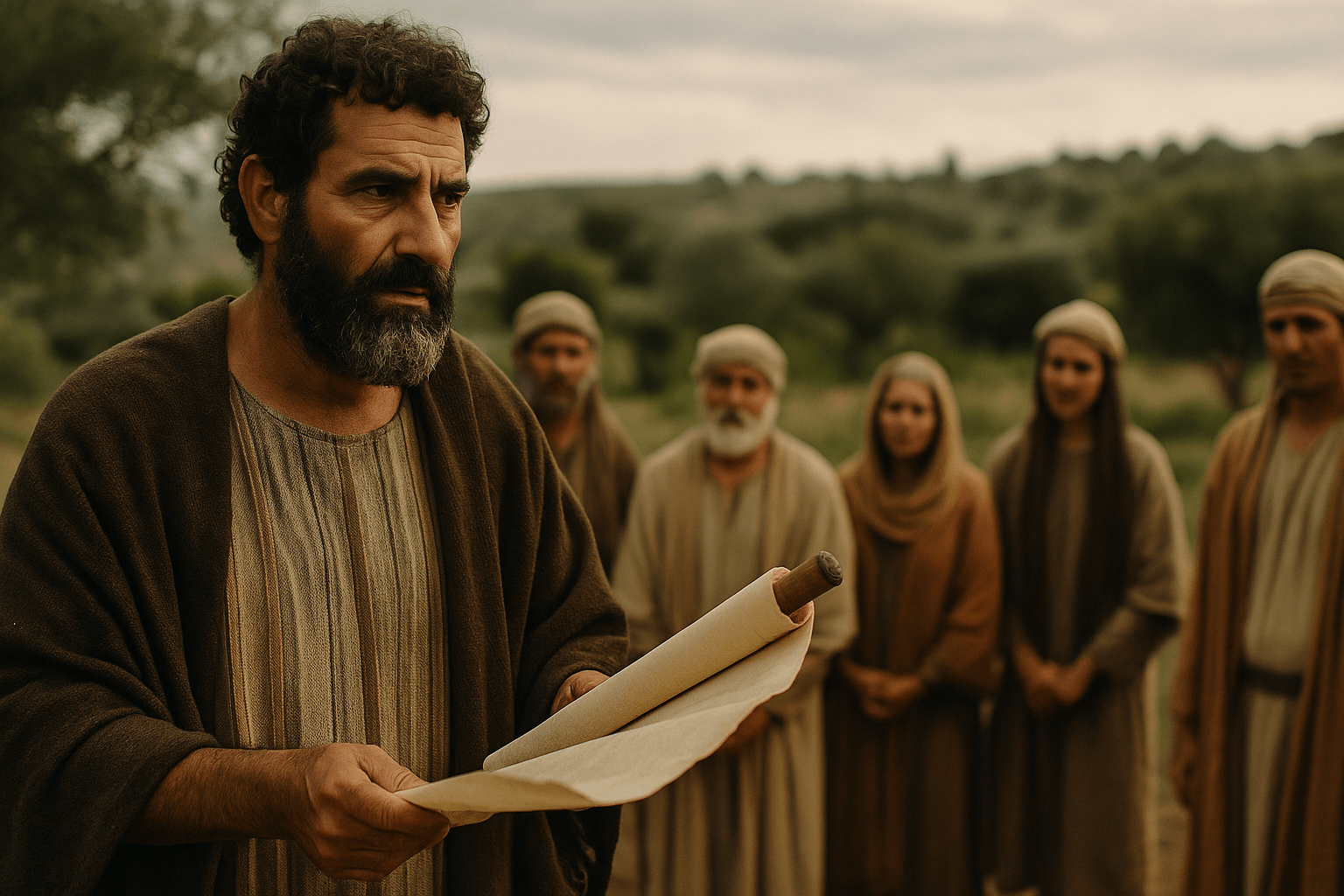The book of Amos is one of the Minor Prophets in the Old Testament, but its message is bold and timeless. Amos, a shepherd-turned-prophet, was sent by God to deliver warnings to Israel about injustice, pride, and empty worship. Let’s look at ten powerful and interesting facts about this prophetic book.
1. Amos Was a Shepherd and Fig Farmer
Amos was not a trained prophet or priest. He lived in Tekoa, a town in Judah, and worked as a shepherd and a caretaker of sycamore-fig trees.
“I was neither a prophet nor the son of a prophet, but I was a shepherd, and I also took care of sycamore-fig trees.” —Amos 7:14 (NIV)
This shows God can use ordinary people in powerful ways.
2. He Prophesied to the Northern Kingdom of Israel
Although Amos was from the Southern Kingdom (Judah), God sent him to speak to the Northern Kingdom (Israel). He preached mainly during the reign of King Jeroboam II.
“Then the Lord took me as I followed the flock, and the Lord said to me, ‘Go, prophesy to my people Israel.’” —Amos 7:15 (NKJV)
Amos crossed kingdom lines to speak truth.
3. The Book Begins With Judgments on Israel’s Neighbors
Amos begins by listing the sins and coming judgments of Israel’s neighbors—Damascus, Gaza, Tyre, Edom, Ammon, and Moab. But then, he turns the focus to Judah and especially Israel.
“For three transgressions of Damascus, and for four, I will not turn away the punishment thereof…” —Amos 1:3 (KJV)
This structure draws Israel in—before convicting them.
4. Israel Was Prospering Economically
During Amos' time, Israel was doing well financially. But Amos warned that wealth and comfort had led to pride, oppression of the poor, and spiritual decay.
“Hear this word, you cows of Bashan… who oppress the poor and crush the needy…” —Amos 4:1 (ESV)
Material success had blinded Israel to their spiritual poverty.
5. Amos Spoke Strongly Against Injustice
One of the main themes in Amos is God's hatred of injustice. He condemned the rich for trampling the poor and bribing judges.
“But let justice roll down like waters, and righteousness like an ever-flowing stream.” —Amos 5:24 (ESV)
This verse became a rallying cry during the American civil rights movement.
6. Worship Without Obedience Displeased God
God told Israel that He rejected their worship because they ignored justice and righteousness.
“I hate, I despise your feasts, and I take no delight in your solemn assemblies.” —Amos 5:21 (ESV)
God wants hearts that obey, not just rituals.
7. Amos Had Visions of Judgment
God gave Amos several visions—locusts, fire, a plumb line, a basket of ripe fruit, and the Lord beside the altar—all symbolizing coming judgment.
“This is what the Sovereign Lord showed me: a basket of ripe fruit.” —Amos 8:1 (NIV)
Each vision showed that time was running out for Israel.
8. The Priests Opposed Amos
Amaziah, the priest of Bethel, tried to silence Amos and told him to go home.
“Then Amaziah said to Amos, ‘Go, you seer! Flee to the land of Judah… but never again prophesy at Bethel.’” —Amos 7:12-13 (NIV)
Religious leaders sometimes resist God's truth.
9. The Book Ends With Hope
Though Amos is full of warnings, the last chapter gives hope. God promises to restore Israel and rebuild what was broken.
“I will bring back the captives of My people Israel… They shall plant vineyards and drink wine from them…” —Amos 9:14 (NKJV)
God's judgment always leaves room for mercy.
10. Amos Shows God's Justice and Mercy
The book of Amos reveals the character of God—He is just and holy, but also merciful. He demands justice, truth, and faithful hearts.
“Surely the Sovereign Lord does nothing without revealing his plan to his servants the prophets.” —Amos 3:7 (NIV)
God warns before He acts, and He offers a way back for the repentant.
Summary Table
| Fact | Key Theme | Bible Verse |
|---|---|---|
| 1 | Amos was a shepherd | Amos 7:14 |
| 2 | Prophesied to Israel | Amos 7:15 |
| 3 | Judged Israel's neighbors | Amos 1:3 |
| 4 | Israel’s false security | Amos 4:1 |
| 5 | Spoke against injustice | Amos 5:24 |
| 6 | God rejected false worship | Amos 5:21 |
| 7 | Amos saw visions | Amos 8:1 |
| 8 | Priests opposed him | Amos 7:12–13 |
| 9 | Ended with hope | Amos 9:14 |
| 10 | God is just and merciful | Amos 3:7 |
























